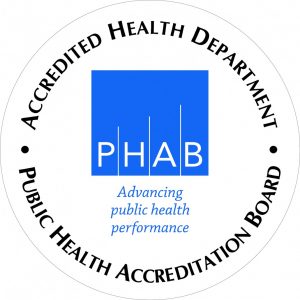Marion Public Health (MPH) has offered the following tips for cleaning up flood water.
When returning to your home after a flood, MPH says to be aware that flood water may contain sewage. Protect yourself and your family by following these steps.
Inside the Home
- Keep children and pets out of the affected area until cleanup has been completed.
- Wear rubber boots, rubber gloves, and goggles during cleanup of affected area.
- Remove and discard items that cannot be washed and disinfected (such as, mattresses, carpeting, carpet padding, rugs, upholstered furniture, cosmetics, stuffed animals, baby toys, pillows, foam rubber items, books, wall coverings, and most paper products).
- Remove and discard drywall and insulation that has been contaminated with sewage or flood waters.
- Thoroughly clean all hard surfaces (such as flooring, concrete, molding, wood and metal furniture, countertops, appliances, sinks, and other plumbing fixtures) with hot water and laundry or dish detergent.
- Help the drying process by using fans, air conditioning units, and dehumidifiers.
- After completing the cleanup, wash your hands with soap and water. Use water that has been boiled for 1 minute (allow the water to cool before washing your hands). Or you may use water that has been disinfected for personal hygiene use (solution of ⅛ teaspoon [~0.75 milliliters] of household bleach per 1 gallon of water). Let it stand for 30 minutes. If the water is cloudy, use solution of ¼ teaspoon (~1.5 milliliters) of household bleach per 1 gallon of water.
- Wash all clothes worn during the cleanup in hot water and detergent. These clothes should be washed separately from uncontaminated clothes and linens.
- Wash clothes contaminated with flood or sewage water in hot water and detergent. It is recommended that a laundromat be used for washing large quantities of clothes and linens until your onsite wastewater system has been professionally inspected and serviced.
- Seek immediate medical attention if you become injured or ill.
Outside the Home
- Keep children and pets out of the affected area until cleanup has been completed.
- Wear rubber boots, rubber gloves, and goggles during cleanup of affected area.
- Have your onsite waste-water system professionally inspected and serviced if you suspect damage.
- Wash all clothes worn during the cleanup in hot water and detergent. These clothes should be washed separately from uncontaminated clothes and linens.
- After completing the cleanup, wash your hands with soap and water. Use water that has been boiled for 1 minute (allow the water to cool before washing your hands). Or you may use water that has been disinfected for personal hygiene use (solution of ⅛ teaspoon [~0.75 milliliters] of household bleach per 1 gallon of water). Let it stand for 30 minutes. If the water is cloudy, use solution of ¼ teaspoon (~1.5 milliliters) of household bleach per 1 gallon of water.
- Seek immediate medical attention if you become injured or ill.
Marion Public Health warns that this information is general in nature and is not intended to be used as a substitute for professional advice. For more information, call your local Marion Public Health at 387-2875, visit emergency.cdc.gov or call CDC at 800-CDC-INFO (English and Spanish) or 888-232-6348 (TTY).

